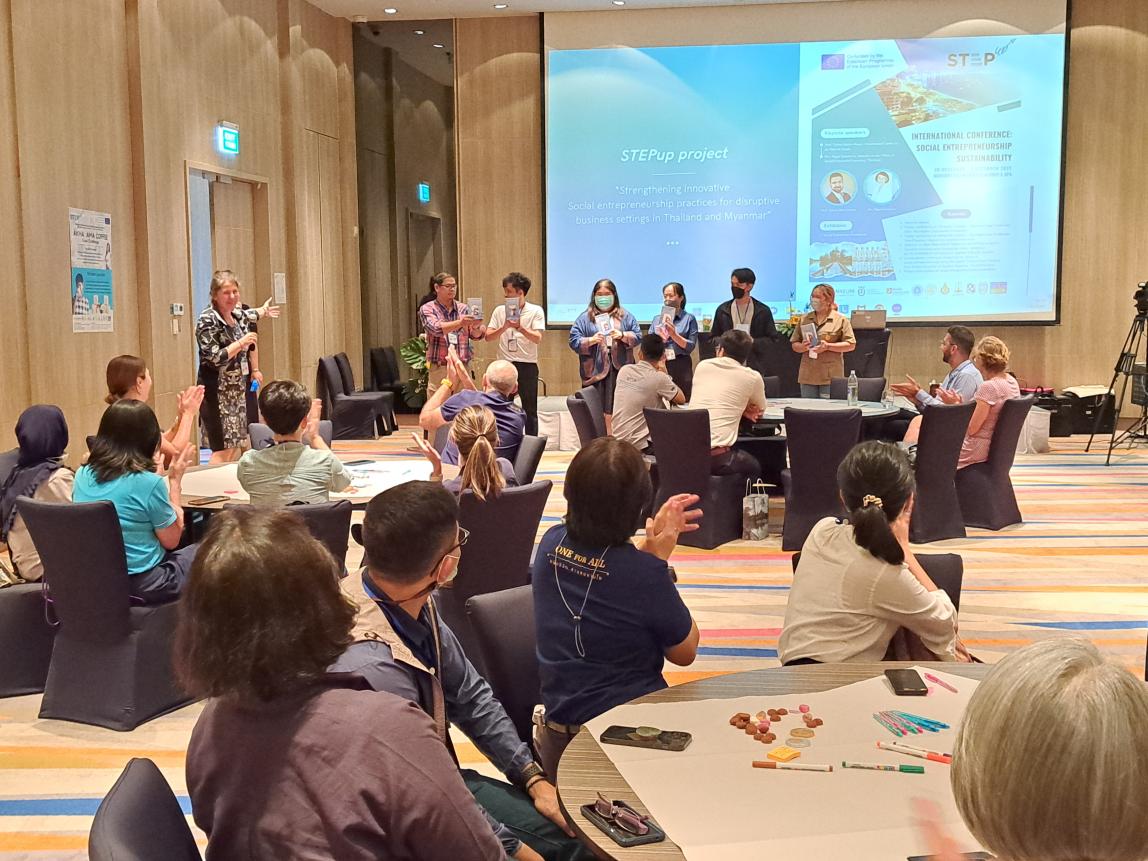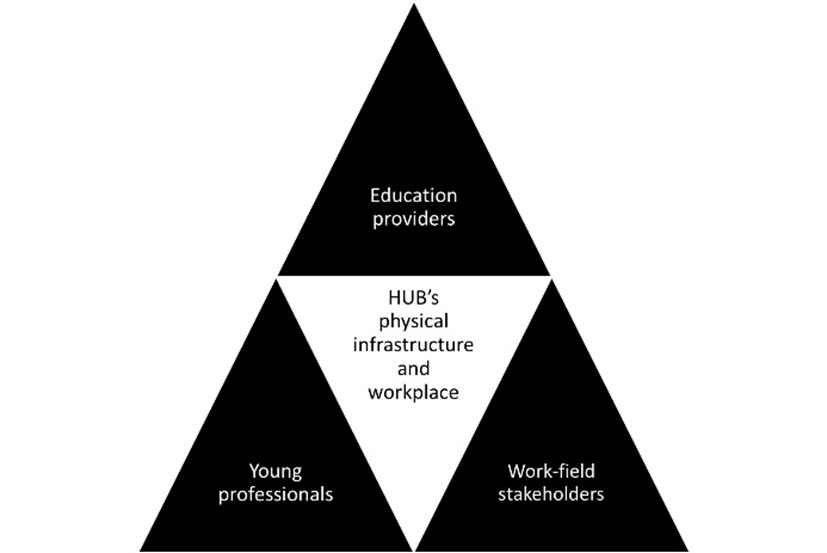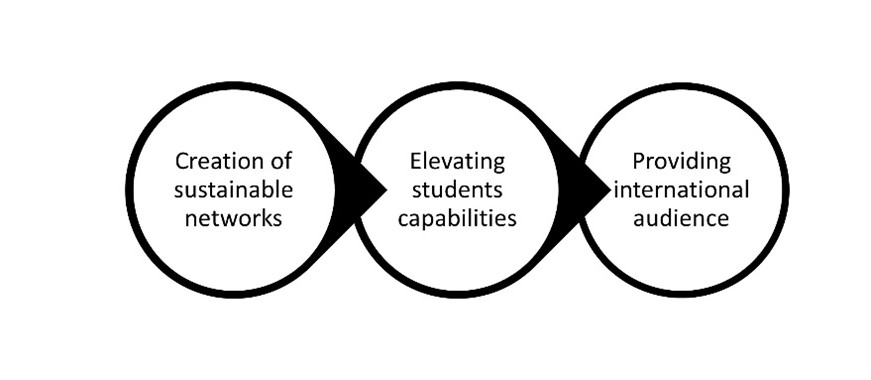
The STEPup project
10/16/2024 - 14:37
- Uncover
Authors:
Dr Liliya Terzieva is professor of Designing Value Networks at the Hague University of Applied Sciences
Drs. Monique Schulte is lecturer of Leisure and Events at Breda University of Applied Sciences
STEPup
The STEPup project was a project that aimed to modernise existing social entrepreneurship practices and promote innovation in Thai and Burmese HEIs by integrating advanced learning tools for the creation of disruptive business ideas into existing academic structures, while strengthening university-business collaboration through participatory schemes on local and regional levels. This project was co-funded by the Erasmus+ Programme of the European Union.
The project was created to strengthen higher educational institutes’ teaching staff capacities and student skill sets through innovative teaching and learning methodologies by offering training sessions combining theoretical and practical inputs and study visits, by creating, equipping and putting in operation Social Entrepreneurship Knowledge Hubs. The project was coordinated by the Institute of International Management of the FH Joanneum University of Applied Sciences. Breda University of Applied Sciences participated in the project as one of the European partner universities.
STEPup outcomes
The STEPup project was conducted between 2020 to 2023 and consisted ofthree project implementation phases, where various activities on a national, regional, and international basis were introduced. As a first step, teaching staff capacities and student skill sets were strengthened by conducting several day-long online and on-site training sessions to deepen the knowledge of social entrepreneurship practices. In addition to the above, to provide a fruitful learning environment on campus, each participating institute (in Thailand and Myanmar) established Social Entrepreneurship Knowledge Hubs (SEKHs) equipped with state-of-the-art technical infrastructures available for free to students and university staff wishing to enhance their social entrepreneurship capacities and/or business ideas. In a second phase, students were encouraged, through the existing SEKHs, to put their knowledge into practice by participating in a local case challenge, which saw the pairing of one business student with one social enterprise to jointly discuss and solve a complex business problem. The goal was to foster innovative thinking in students and allow them to act in real-life contexts within a secure learning environment. The work culminated in a local case challenge pitching events during which an international jury consisting of project consortium members and regional businesspeople chose a winning student team. These winning case studies are currently still being presented in a series of academic publications, allowing students and institutes to extend their international networks and profile. The third and final phase was the development of a methodology and framework for sustaining the established infrastructure and trained human capital towards further social entrepreneurship applied and research endeavours. Some generic statistics to underscore the above-mentioned: a total of 113 people participated in the four training sessions, which included local case studies to show how to implement the concept of SE in Thailand and Myanmar; the Open Educational Resources were used (in English, Thai as well as Burmese) by more than 570 people; each HEI conducted two knowledge and practice multiplier events, where more than 250 additional project ambassadors were reached; more than 120 people took part in the local case challenges; more than 50 publications were produced.
Social entrepreneurship as community driver and beyond
Social entrepreneurship can be viewed as the process of applying innovative business models to address social problems (for people and communities) by achieving both profit and purpose (Terzieva and Herpich, 2021). Social entrepreneurship is there to create long-term value and generate sustainable impact for society and the connected ecosystem. The difference between ‘regular/traditional business model’ and a ‘social business’ one needs to be emphasised. The first and foremost differentiation is the position within the continuum of ‘profit’ versus ‘purpose’. Whereas value within the traditional business model is measured mainly by means of financial metrics, the value within the social business model lies in enterprises aiming at maximising their social gain and utility, which is achieved by means of innovation while still ensuring that the organisation is financially viable (Garcia-Jurado, Perez-Barea and Nova, 2021).
Social Entrepreneurship is an economic reality in many Asian countries such as Thailand and Myanmar; however, it usually applies to small businesses struggling to make money with no prospect of growth. Social entrepreneurs either do not know that they are social entrepreneurs or have no knowledge of how to scale their businesses to make a real impact on society. Additionally, social entrepreneurship is not a desirable career path for young people, which is partly due to the scarce range of educational programmes in this field offered at higher education institutes. Innovative, disruptive business ideas need to emerge to not only tackle the societal challenges in the countries but also to give students the possibility to acquire skills needed by the labour market to allow them to play an active role in society and achieve personal fulfilment.
What has certainly become clear based on the data collected, processed and analysed was that reaching the impact goals necessitates a strategic focus on ‘community development’ within the collaborative framework of education and industry. The topic has been at the centre of the STEPup project´s learning approach by connecting students with specially trained university staff members, existing social entrepreneurs and other actors of the SE ecosystem while simultaneously providing a physical infrastructure and workplace.

Applying a three-tiered approach (see Figure 1) proved successful in creating sustainable networks among members of business and academia, elevating students' capabilities of business analysis and providing them with an international audience for their research (see Figure 2). Furthermore, the research on the project implementation shows that the established social entrepreneurship hubs have been promoted and positioned by means of events, which created visibility for the participating universities and allowed them to offer a proven concept of collaboration and learning structures to external stakeholders for monetary and social value in the long run.

Interweaving context and content – a new meaning of success
Higher education institutes (HEIs) are under increasing demands to prove they are providing high-quality outcomes for research, innovation, teaching and graduate employability. Social entrepreneurship can meet these demands. It is now important to make use of the positive climate and connect the different initiatives by offering an approach that interlinks learning environments in HEIs with students and businesspeople in the SE context. Ultimately, their success is the measure of any HEI’s success. Therefore, it is of utmost importance to define what such a success could mean, such as:
- being immediately employed after graduation.
- the extent to which the industry identifies the students as the players of value to have within their networks.
- the impact/societal relevance: having a marked positive effect or influence on the development of an industry or of society - sustainably and with a long-term orientation.
It has therefore been the mission of the STEPup project - a mission which is steadily becoming a reality - to establish the foundations for social entrepreneurship to be organically embedded in the educational practices of the HEIs in Thailand and Myanmar and to shape the perception of students and lecturers alike, in terms of viewing social entrepreneurship as the essential path forward. With a cadre of trained individuals ready, physical infrastructures established, and educational models and pilots rigorously tested, it is accurate to say that we have transcended the initial steps and effectively integrated institutional and industry principles.
Another success factor for a similar project is that all partners involved need to draw clear benefits from the project: students, lecturers, training partners and other stakeholders - after all, the goals of the STEPup project have been achieved due to the committed involvement of everyone. In addition, it is important to ensure constant communication, which is multidirectional and taking into consideration the specific context in place. The need to create learning communities - by means of the established SEKHs - where students, industry partners, educators and researchers work together on practical challenges for industry and society has become the new norm. By extension, it logically follows that these learning environments - blending education, research, and impact - are international and intercultural.
More information
- https://stepup.fh-joanneum.at/
Sources - García-Jurado, A., Pérez-Barea, J. J., and Nova, R. (2021). A new approach to social entrepreneurship: A systematic review and meta-analysis. Sustainability, 13(5), 2754.
- Terzieva, L. and Herpich, S. (2021). The rise of social entrepreneurship through populism. New Populism and Responses of the 21st Century - Online proceedings, India and USA.
- Terzieva, L., Mahajan, L. & Schulte, M. (2023). Higher Education Institute (HEI) Learning Hubs: A Case
Study on Social Entrepreneurship in Thailand and Myanmar. Poslovnaizvrsnost, 17(1): 83-97.
This article was published in Uncover Magazine - Internationalisation. You can read the complete magazine via this link.